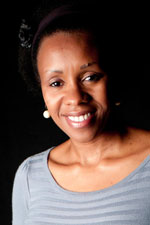Conversations with Africa
This is a scenario that demonstrates that there is always a risk involved when doing business in Africa. It also shows why the conversation around Africa remains alive - because of its ever-changing landscape.

This was the view of Carol Abade, Kenyan CEO of SA-based EXP. Abade was the guest speaker at the recent Yellowwood presentation held in Johannesburg and Cape Town. The presentations launched the company's latest research entitled: 'African Attitudes: Marketing beyond the numbers'.
Abade asked why 20 years down the road we have still not figured out Africa. "Why are we still having this conversation? Why have businesses not embraced the continent for what it is?
Doing business in Africa is easier than you may think
Too often it is said that Africa is a difficult place to do business, but she maintains it actually easy to do business in Africa, but brands don't want to do the long haul to be successful in Africa.
"They miss opportunities because of campaigns that are translated. Language is not about words and copy, but about heart and soul. Your campaign must be based on human truths and developed through strategy, not translation. Local is important so understand resident nuances. Real wisdom is when a brand can tap into resources in each market and know how to interact with consumers in those markets."
Different cultures
History is important she says because it impacts on behaviour. Therefore, Kenya has a strong British and English culture, while French-speaking territories are rooted on culture, arts and music. Uganda and Kenya may both be in East Africa, but their cultures are completely different.
Tradition, religion and family are strong influences. "50 shades of Grey was banned in a number of African countries and did not even make it to Kenya. In France, it was only given a 12-and-under rating. This speaks to the way we portray people in advertisements and reflecting people as they are in these societies," she explains.
Take an inside-out approach
Presenting the research, David Blyth, Group MD at Yellowwood, said that in Africa, brands need to think about how they can give back. Displacement is not growth; instead brands need to create opportunities for people. This includes not dumping goods that are about to expire on our doorstep. If it is not good enough for another market, it is not good enough for Africa, and this includes products that are second rate."
To change the view of Africa that the world has, Blyth believes an inside out approach is needed. "The era of being successful just because you are on the continent is over. Marketers need to start with the African consumer, understand their unique context and needs. A make once, sell many times is losing relevance - not only in Africa but globally, with all consumers looking for personalisation."
Only brands that understand African attitudes and archetypes will survive. The research found what is most important to Africans are (in this order), family, God, health, education, money, love, friends, and then others.
And what to African consumers expect from brands?
Out of these, Yellowwood built a number of African archetypes. These include survivors, traditionalists, carers, mentors, optimists, go-getters, inventors and bosses. The idea of these, explains Blyth, is to give marketers insight into African markets through their people, common needs and attitudes, providing important positioning opportunities.
The research also examined the opposite, that is, what do African consumers expect from brands. What they expect is (in this order): Quality, Product nature of and is it relevant to me, Date, Expiry, Value, Durability, Money and others. Marketers can use these to construct propositions going forward, says Blyth.
He concluded by saying that marketers need to remember - and understand - that in Africa proximity is not meaningful, as two neighbouring markets can be vastly different. "Strategy needs to focus more on attitude than proximity. Never underestimate the power of local knowledge and create your own uniquely African story."

About Danette Breitenbach
Danette Breitenbach is a marketing & media editor at Bizcommunity.com. Previously she freelanced in the marketing and media sector, including for Bizcommunity. She was editor and publisher of AdVantage, the publication that served the marketing, media and advertising industry in southern Africa. She has worked extensively in print media, mainly B2B. She has a Masters in Financial Journalism from Wits.Related
#BizTrends2025: Break free from brain rot, enshittification, move from digital sameness and embrace culture movements 31 Mar 2025 Delta Victor Bravo appoints Derek Bouwer as non-executive director 19 Feb 2025 Delta Victor Bravo appoints Sharon Keith as non-executive director and chief coach 22 Jan 2025 Sunday Times GenNext Awards crowns the coolest of the cool crowd 20 Nov 2024 The changing expectations of marketing 8 Oct 2024 Creativity in marketing 26 Sep 2024























